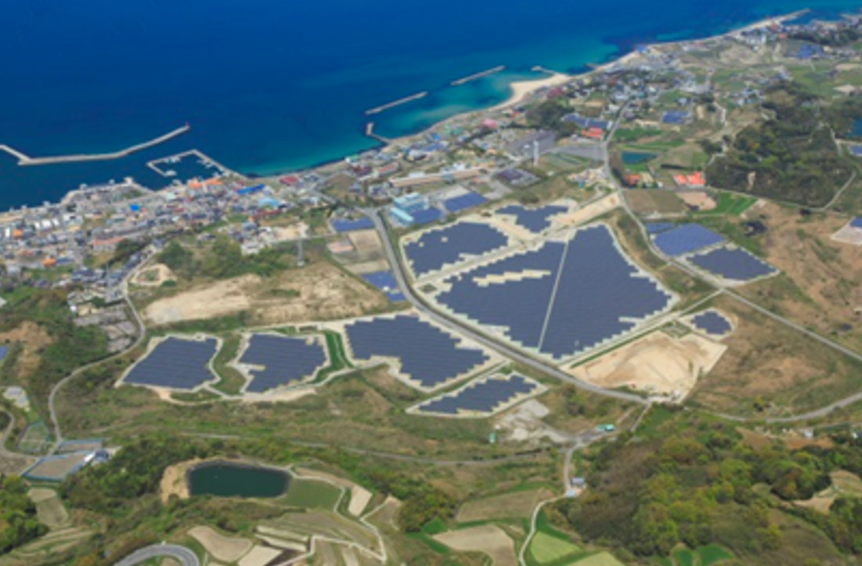the new plant started generating electricity at the site in late May. Kyocera supplied about 51,000 multicrystalline PV modules for the array, according to an online statement. The project is expected to annually generate enough electricity for about 4,000 homes.
Eurus Energy said that the installation is its second solar project on Awaji, an island that sits between the city of Kobe and the island of Shikoku. In June 2015, it completed a 33.5 MW project on Awaji, which remains one of its biggest solar projects in the country. Its other large PV installations in Japan include a 30 MW site in the town of Shiranuka, on the northern island of Hokkaido.
The company — a joint venture between utility Tokyo Electric Power (Tepco) and Toyota Tsusho, the trading arm of the Japanese automaker — currently operates about 929 MW of renewables capacity in Japan, although much of it is wind power. It is now building an additional 89.97 MW of capacity in the country, according to its website.
However, it has also built numerous clean-energy projects throughout Asia, Europe and the U.S. In January, it completed a 27.6 MW solar array in Waianae, on the Hawaiian island of Oahu. The installation is its second largest utility-scale solar array in the U.S. And in late 2015, it announced plans to collaborate with Windlab to develop the first large-scale hybrid solar and wind project in Australia.
This content is protected by copyright and may not be reused. If you want to cooperate with us and would like to reuse some of our content, please contact: editors@pv-magazine.com.



1 comment
By submitting this form you agree to pv magazine using your data for the purposes of publishing your comment.
Your personal data will only be disclosed or otherwise transmitted to third parties for the purposes of spam filtering or if this is necessary for technical maintenance of the website. Any other transfer to third parties will not take place unless this is justified on the basis of applicable data protection regulations or if pv magazine is legally obliged to do so.
You may revoke this consent at any time with effect for the future, in which case your personal data will be deleted immediately. Otherwise, your data will be deleted if pv magazine has processed your request or the purpose of data storage is fulfilled.
Further information on data privacy can be found in our Data Protection Policy.